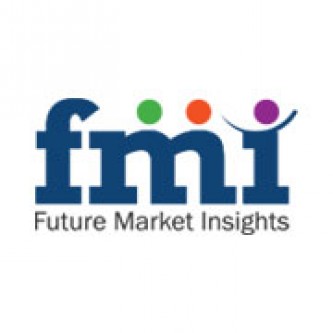Venous Thromboembolism (VTE) is formation of blood clot in the vein. It includes both Deep Vein Thrombosis (DVT) and Pulmonary Embolism (PE). When a clot forms in a deep vein, usually in the leg, it is called a deep vein thrombosis. If that clot breaks loose and travels to the lungs, it is called pulmonary embolism. Long term complications of venous thromboembolism include chronic thromboembolic pulmonary hypertension (CTPH) and the post-thrombotic syndrome (PTS).
Venous thromboembolism is third most common cardiovascular disease occurred in the world. Common symptoms of venous thromboembolism include edema, dilated blood veins mainly in chest and legs, dyspnea, tachycardia and fever. The lower extremities are the most common site for DVT, but other affected locations include the upper extremities and the mesenteric and the pelvic veins, as well as the cerebral veins.
Venous Thromboembolism Treatment Market: Drivers and Restraints
Major factors such as increasing morbidity rate of venous thromboembolism and increasing awareness about available treatments for venous thromboembolism are driving the global venous thromboembolism treatment market towards growth. On the other hand, factors such as stringent regulatory approvals and challenges in adaption of newer drug in the market are restraining the growth of this market.
Request Free Report Sample@ http://www.futuremarketinsights.com/reports/sample/rep-gb-1341
Venous Thromboembolism Treatment Market: Segmentation
Venous thromboembolism treatment market is segmented on the basis of product type, end use and geography.
Based on product type, the global market of venous thromboembolism treatment is segmented as follows:
• Medications
• Anticoagulants
• Heparin
• Factor Xa inhibitors
• Fondaparinux
• Dabigatran
• Vitamin K antagonists
• Warfarin
• Compression Therapy
• Surgical treatment
• Pulmonary embolectomy
• Vena caval interruption
Based on end use, venous thromboembolism treatment market can be segmented as follows:
• Hospitals including hospital pharmacies
• Clinics
• Retail pharmacies
• Home care settings
Visit For TOC@ http://www.futuremarketinsights.com/toc/rep-gb-1341
Venous Thromboembolism Treatment Market: Overview
With rise in the aging population, morbidity rate of venous thromboembolism is also rapidly increasing. The mainstay of venous thromboembolism treatment is anticoagulation. However, anticoagulants will probably always increase bleeding risk. Hence, using both heparin and compression stockings appears better than either one alone in reducing the rate of deep vein thrombosis. Medications to treat venous thromboembolism like heparin, dabigatran has shown promise. Vitamin K antagonists are also commonly used. Acute DVT may be treated in an outpatient setting with low-molecular-weight heparin. Hence, these medicinal therapies are responsible for the growth of venous thromboembolism treatment market.
Venous Thromboembolism Treatment Market: Region-wise Outlook
Region wise, the venous thromboembolism treatment market is classified into countries namely, North America, Latin America, Western Europe, Eastern Europe, Asia-Pacific, Japan, Middle East and Africa. North America is the dominant regional market for venous thromboembolism treatments and is followed by Europe due the existence of a lathe number of venous thromboembolic patients in these regions. North America and European venous thromboembolism market is driven by high healthcare spending, improved healthcare infrastructure and high awareness about the disease and available treatments. Asia Pacific is a promising market for venous thromboembolism treatment and is expected to undergo rapid market growth due to increase in purchasing power, changing healthcare infrastructure and increased awareness for clinical facilities.
Full Report Analysis@ http://www.futuremarketinsights.com/reports/venous-thromboembolism-treatment-market
Venous Thromboembolism Treatment Market: Key Players
Some of the major companies contributing to venous thromboembolism treatment market are Sanofi-Aventis, Upsher-Smith Laboratories, Abbott Laboratories, Merck & Co., Wockhardt Ltd, Bayer Biologicals, Dupont Pharm Co, Bristol-Myers Squibb Company and Pfizer Inc.

